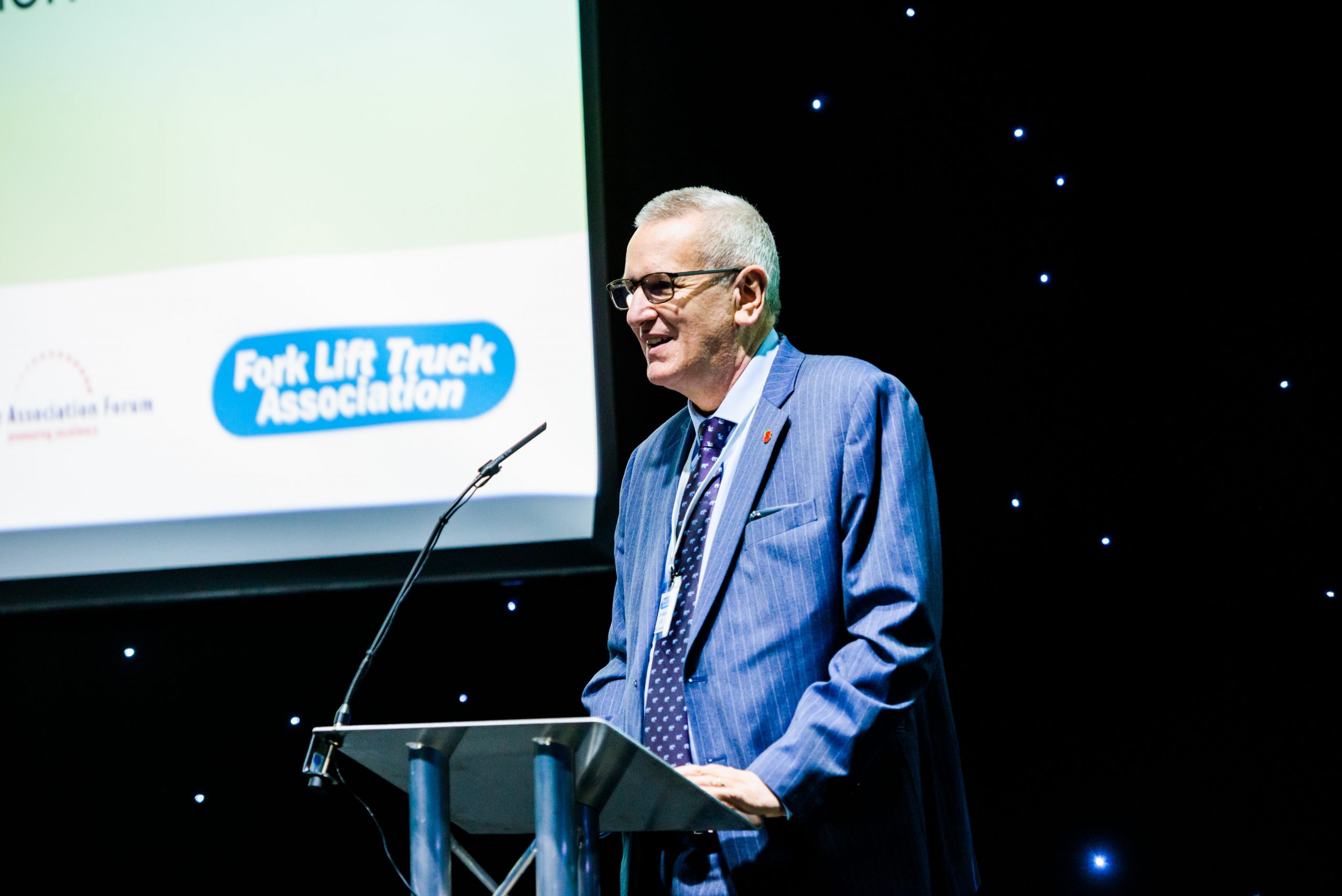National Forklift Safety Convention focuses on the need for front-line leadership and a culture of trust
The presentations may have been diverse but a single, powerful theme ran through this year’s National Forklift Safety Convention: the need for strong, authentic and engaged management creating an environment where staff feel heard, valued, and genuinely involved. The result is a virtuous loop where all feel free to speak openly and honestly in order to sustain a common and evolving safety culture.
Organised by the Fork Lift Truck Association and attended by hundreds of managers and supervisors from all sectors, the award-winning event was opened by FLTA Chief Executive Tim Waples, who gave a poignant address. Calling for an industry-wide change in attitude, he said: “An ‘accident’ sounds apologetic, like it’s just one of those things that couldn’t be helped, but the truth is all ‘accidents’ can be prevented.”
The Convention was hosted by Stuart Taylor of Safety Partner Mentor FLT Training and was sponsored by Toyota Materials Handling.
Focussing on the need for both real-world safety measures as well as a culture shift in achieving lasting improvement, presenters were in complete agreement that the starting point lies with a senior management that is dedicated, congruent and demonstrates — in every action — their commitment to site safety.

The tone for the day was set with the screening of Lisa’s Story, a short but devastating account of the tragic incident and the aftermath that followed when office worker Lisa Ramos was run over by a forklift truck and lost her leg.
Available on the FLTA website, the video has been used by two of the events most engaging contributors Paul Davies and Christian Hamilton of Kellogg’s. In a series of toolbox talks held at Europe’s largest cereal factory, the video had a profound effect on colleagues who viscerally understood the importance of safety and of looking out for each other.
As one colleague summed up: “I don’t want that happening to me… or any of my workmates.”
Voted winners of the coveted FLTA Safe Site Award, Kellogg’s provided a wealth of practical tips and guidance and was the first in a series of three fascinating case histories in which they, DHL and Aggregate Industries shared the actions they had taken to transform the safety of their forklift truck operations.
Exploring the ways that safety can be evaluated, Mike Belson of Aggregate Industries pointed out that the absence of accidents doesn’t equate to the existence of safety. He suggested that rather than evaluating success by the things you don’t want to happen (accidents and incidents) safety should be measured by the things you want to see.
According to behavioural psychologist Prof Tim Marsh, for change to be successful, management must engage meaningfully with those who work on and alongside forklifts in order to obtain their total buy-in. As Prof Marsh explained: “A company’s culture is what happens when you’re not there. When it comes to operating safely, your staff know all the answers… all you need to do is ask them… and genuinely listen.
“Trust is key to improving a company’s culture and that works both ways. Be prepared for mistakes — they are inevitable but they are also an opportunity to learn and improve. Above all, avoid blame as that is corrosive to trust. And remember, you can’t just tell a workforce to behave differently, changing the situation is ten times easier than changing the person. If you want your people to care, you have to show them the company cares.”
Keynote speaker Kanwal Kanda, Head of Transportation for the HSE, underlined the need for constant monitoring as bad practice often develops over time through inadequate management systems which allow opportunities for correction to be missed, ignored or misunderstood.
He also offered valuable practical guidance, emphasising, like Prof Marsh, the need for acknowledging human nature. He spoke of the importance of considering “desire lines” when setting out pedestrian walkways. If the routes are counter-intuitive, no-one will use them.
He also stressed the importance of creating a segregated viewing space where visiting lorry drivers can see and influence the safe loading of their vehicle, for which they will ultimately be responsible.
Explaining the value of the event, Tim Waples said: “The Convention provides delegates with the opportunity to see the latest equipment first-hand in the Safety Exhibition, to receive guidance from leading experts and to network with like-minded colleagues willing to share their experiences and solutions.”

